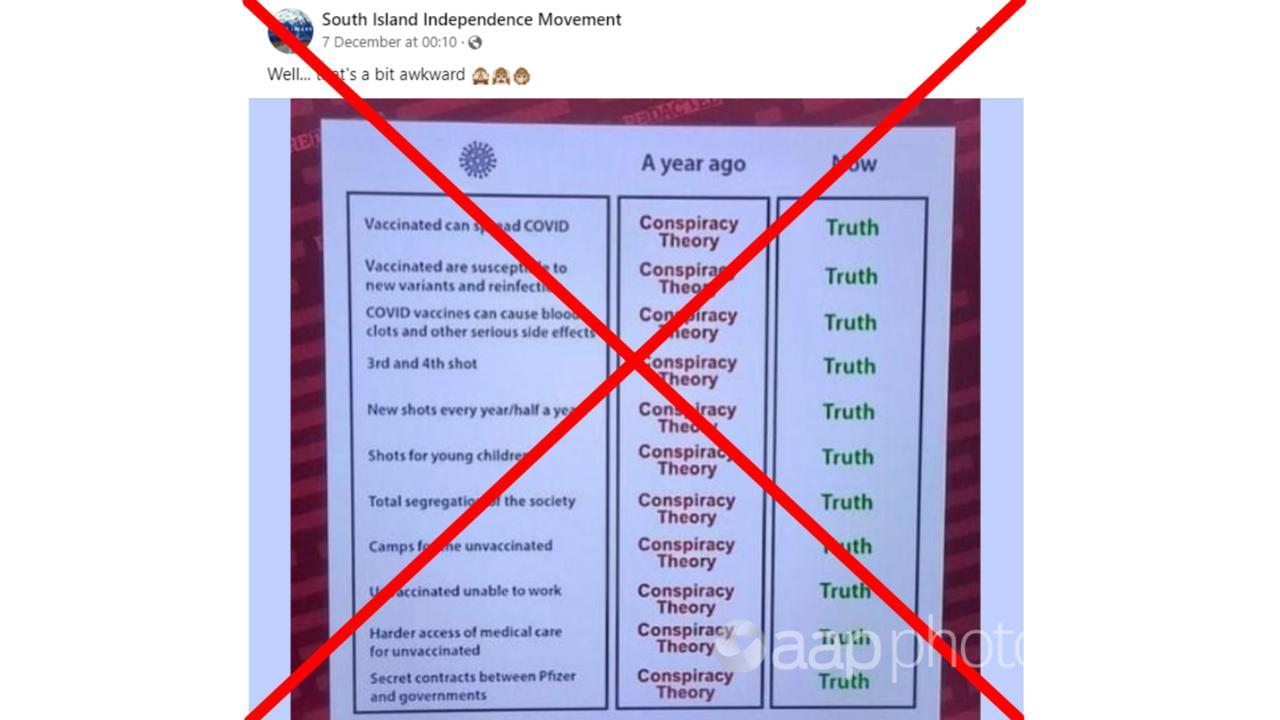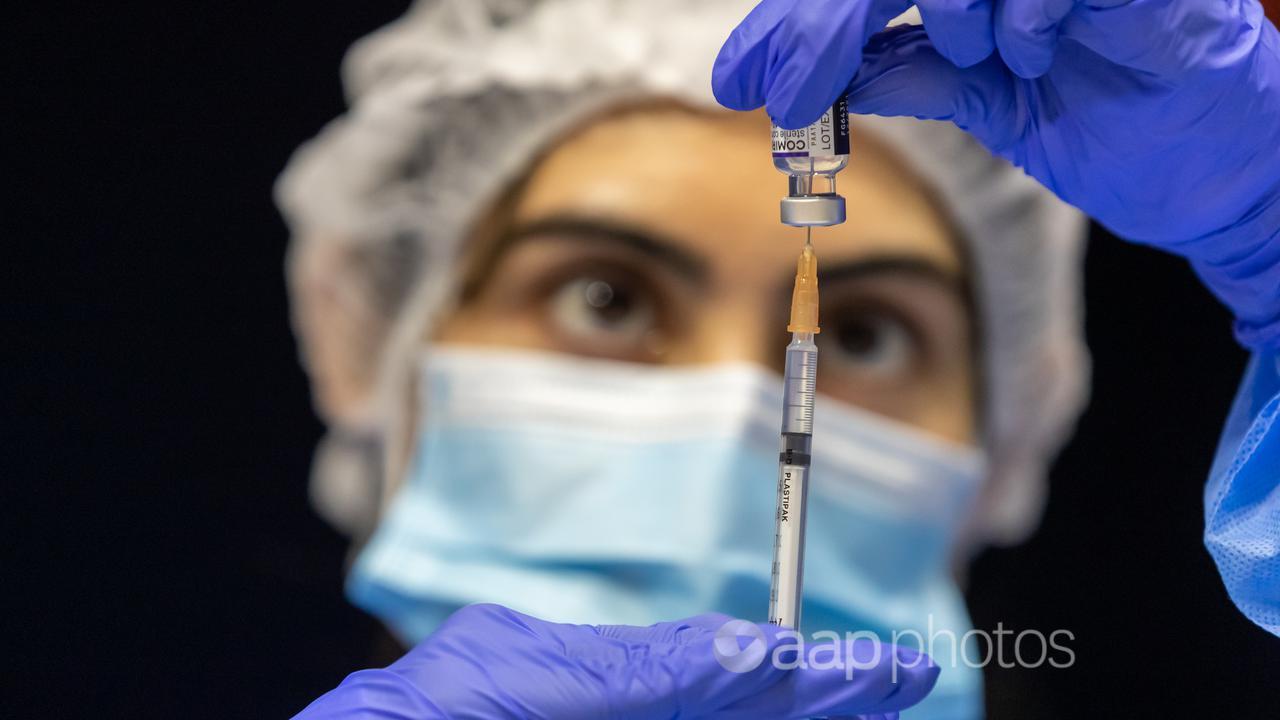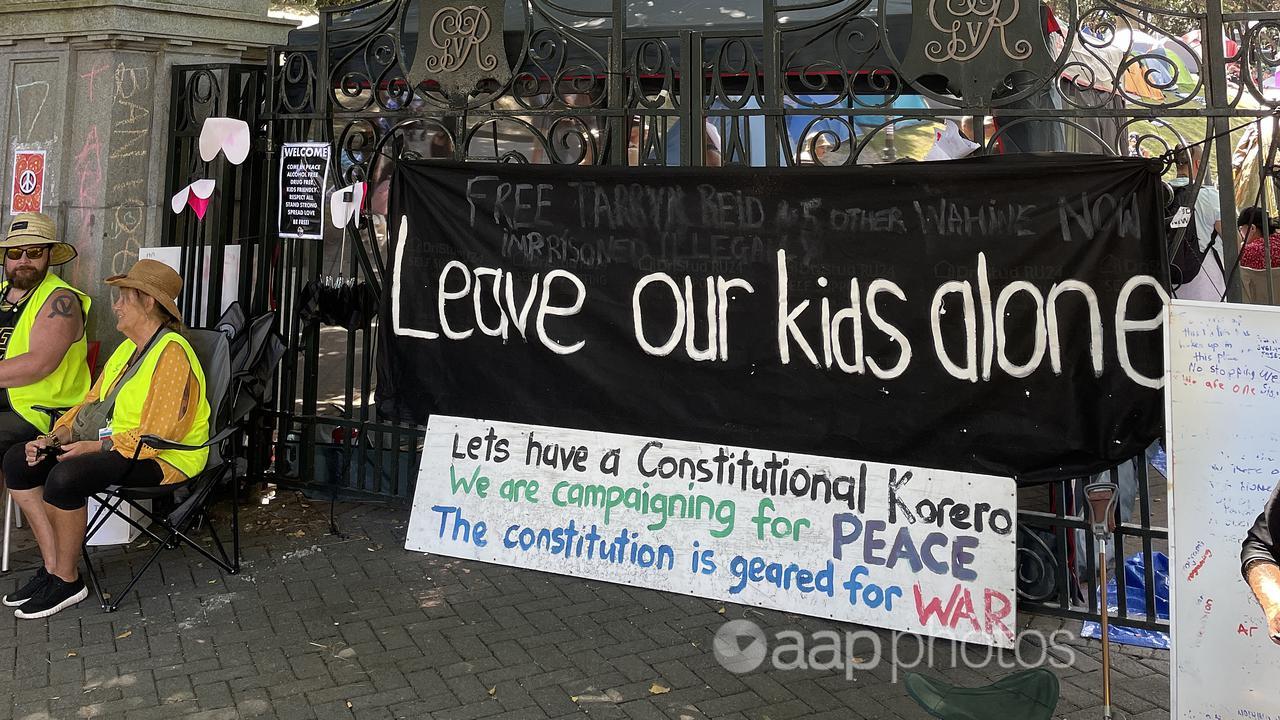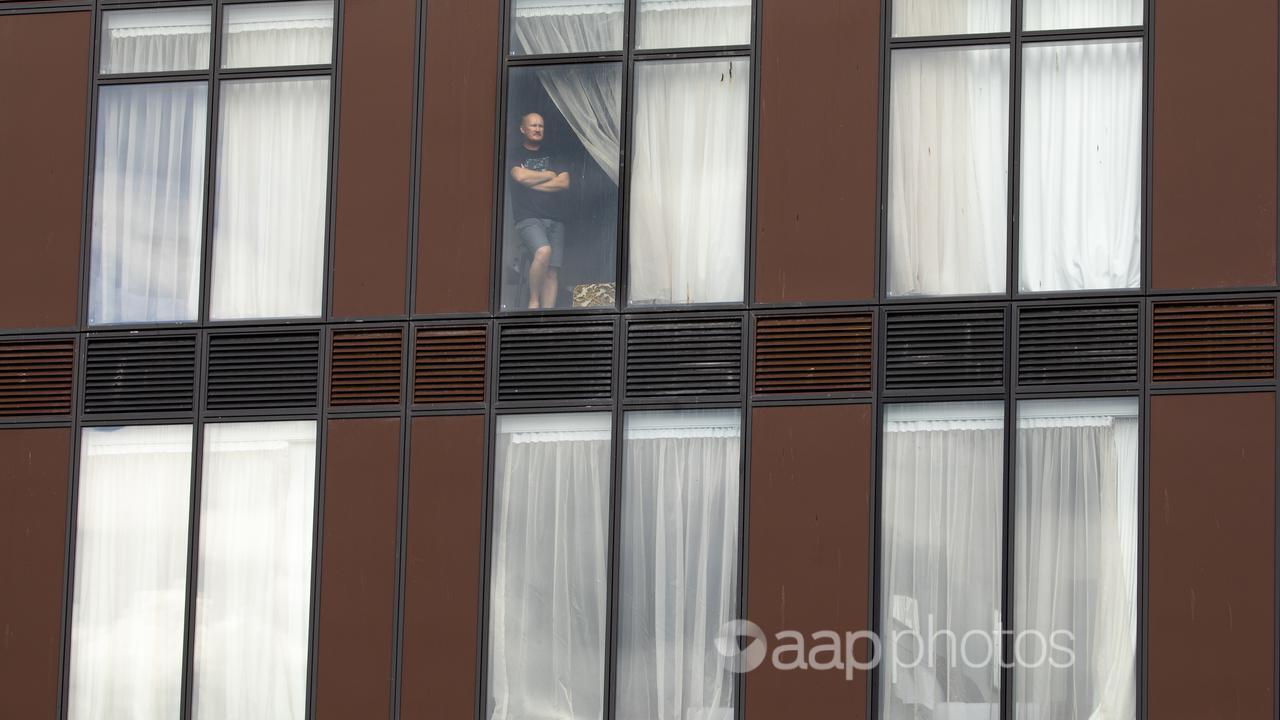A meme posted on a New Zealand Facebook group’s page claims camps were created for unvaccinated people during the COVID-19 pandemic.
The meme, posted by the South Island Independence Movement, doesn’t specify if the claim relates directly to New Zealand or elsewhere.
Either way the claim is false. A public health expert and the NZ government told AAP FactCheck that no camps were established to detain people who refused a COVID-19 vaccine in the country. Claims that camps have been created elsewhere in the world have been debunked numerous times.

The meme, posted on December 7, shows a list of statements related to the pandemic response including “Camps for the unvaccinated”. It claims each item on the list was a “Conspiracy Theory” a year ago, but is now “Truth”.
Michael Baker, a professor of public health at the University of Otago Wellington and a member of the NZ government’s COVID-19 Technical Advisory Group, said he had never heard of such a policy.
“There has not been a policy or program to place unvaccinated people in camps during the COVID-19 pandemic,” Professor Baker told AAP FactCheck in an email.
Prof Baker said some people who were especially vulnerable to the virus may have chosen to reduce their contact with wider society to protect themselves, but this was not the same as detaining the unvaccinated population.
NZ’s Ministry of Health confirmed the claim is false.
The government was criticised over its managed isolation and quarantine (MIQ) program during the pandemic, but this was for citizens returning from overseas, not unvaccinated people.
AAP FactCheck has previously debunked claims internment camps existed for the unvaccinated in Australia, such as here and here.
The Australian government utilised the Manigurr-ma Village near Darwin to enable international arrivals to quarantine before entering the country. However, it did not act as a facility for the unvaccinated.
Several international fact-check organisations have debunked claims of camps for the unvaccinated elsewhere, see here, here, here, here, here, here and here.

The meme also makes several other claims that are false or misleading. It states that the understanding the “Vaccinated can spread COVID” was also a formerly held conspiracy theory. However, this fact was widely acknowledged by authorities before the vaccine was approved for most countries.
In a January 2021 interview, World Health Organization representative Margaret Harris said: “We don’t know whether any of the vaccines will actually prevent transmission.” Dr Harris noted this was the reason the initial focus was on vaccinating those most at risk from the virus.
Back in November 2020, while the Pfizer BioNTech vaccine was still in development, BioNTech’s CEO Uğur Şahin told the BBC he hoped it would reduce transmission by 50 per cent.
A review authored by the Australian Academy of Health and Medical Sciences said in December 2020, two months before the first person was vaccinated in the country, that the initial vaccines “may have limited impact on….transmission and spread.”
Far from being a conspiracy, numerous articles and experts prior to and in the early days of the vaccine rollout questioned the extent to which it would prevent transmission, see here, here, here, here, here and here.
The meme also labels the understanding that vaccines “can cause blood clots and other serious side effects” a conspiracy theory. The NZ government and medical experts acknowledged the extremely low risk of blood clotting associated with the AstraZeneca vaccine as early as April 2021.
There are numerous media reports from even earlier in 2021 detailing the risk of clots, see here, here and here.

The post also suggests the potential for booster shots was another conspiracy theory.
Scientists were discussing the need for annual boosters back in May 2020 – long before any vaccine had even been developed.
Moderna announced it was developing a booster in January 2021 and various other news articles discussed the need for boosters long before most had received their first injection, see here, here, here and here.
Vaccines for young children is also put forward as a previously held conspiracy theory. The post doesn’t specify how young is young. However, there were discussions about vaccinating children long before the first jabs were in arms, see here, here, here, here, here and here.
The Verdict
A New Zealand Facebook group’s claim that camps were established to hold unvaccinated people during the pandemic is false. Experts told AAP FactCheck that such camps did not existed. Fact-check organisations have repeatedly debunked similar claims around the world. Several other claims in the post are also false.
False – The claim is inaccurate.
* AAP FactCheck is an accredited member of the International Fact-Checking Network. To keep up with our latest fact checks, follow us on Facebook, Twitter and Instagram.
All information, text and images included on the AAP Websites is for personal use only and may not be re-written, copied, re-sold or re-distributed, framed, linked, shared onto social media or otherwise used whether for compensation of any kind or not, unless you have the prior written permission of AAP. For more information, please refer to our standard terms and conditions.


















